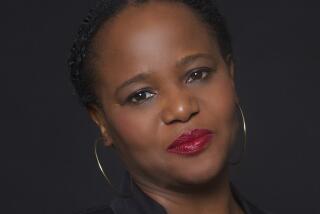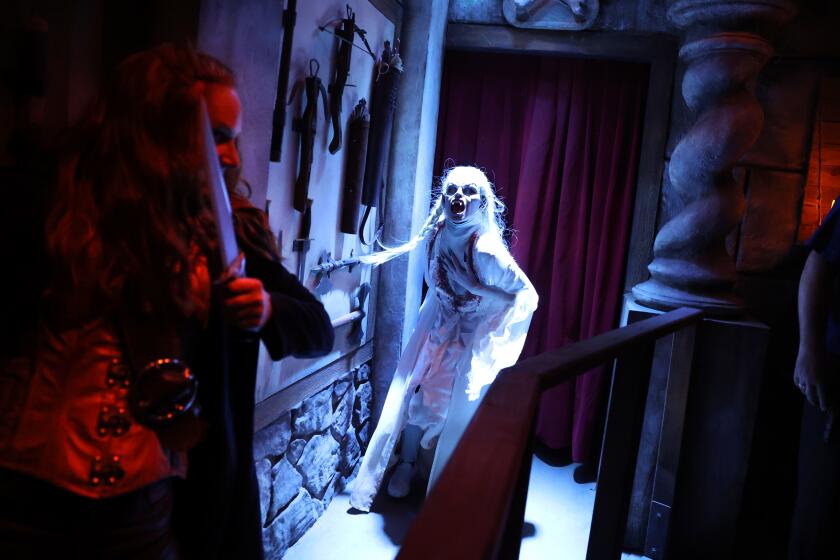Book review: ‘I Remember Nothing and Other Reflections’ by Nora Ephron

I Remember Nothing and Other Reflections
Nora Ephron
Alfred A. Knopf: 142 pp., $22.95
It’s good to be Nora Ephron.
When you’re Nora Ephron, you can get Meryl Streep, who once played a fictionalized version of you, to star as Julia Child in your movie and no one will think to ask why, when you had Meryl Streep, you didn’t just toss the boring blogger conceit and make a full-on Julia Child feature.
When you’re Nora Ephron, you can righteously protest the lack of female screenwriters while reaping the benefit of being the best known. You are more than a person, or a writer; you’re an intellectual brand, the rom-com, New York Times’ Hers-column version of Susan Sontag or Joan Didion, a woman of certain cultural rank. Yes there have been flops, but you wrote “When Harry Met Sally…,” so everything that happens to you — aging, the loss of a rent-controlled apartment — becomes worthy of note.
When you’re Nora Ephron you can throw together two or three moderately fine pieces, stretch them out with an assortment of previously published mini-rants and a few unforgivably lazy lists — “What I Will Miss,” “What I Won’t Miss” — and wait to see how high it will debut on bestseller lists.
What I like about “I Remember Nothing”:
The piece titled “Journalism: A Love Story,” which is a wonderfully evocative portrait of a certain time — the ‘60s and ‘70s — in New York print journalism and a reminder of how joyfully difficult it was to become Nora Ephron. Someone should make it into a miniseries.
The ubiquitous name-dropping of old Hollywood, old Washington and old New York, because I fear we are just a half-generation away from no one quite remembering the social significance of Lillian Ross and Kay Graham.
The piece titled “Pentimento,” not because it involves the still-controversial Lillian Hellman, but because Ephron precisely captures how dangerous admiration can be to both parties.
Ephron’s voice. When I was a journalist just out of college, I worked at Ms. magazine and all my friends and I wanted to be Nora Ephron. She turned her divorce into a wise and hilarious bestselling novel, she wrote about events and people in such a way that was journalistically informative but also full of wit and stinging cultural analysis. She wrote about food before everyone was a foodie. She was smarter, darker and funnier than Anna Quindlen. Ephron’s voice helped launch a whole new way of writing, and I still love to hear it, even when it is tipping dangerously toward querulousness.
The piece titled “The Legend.” After fearlessly playing up the high-profile life of her screenwriter parents — at least two paragraphs require the aid of IMDB — she turns out to be telling the story of every alcoholic family.
What I didn’t like: Everything else. The problem with being Nora Ephron is that you are such a good get. Which means editors want you to write for them, even if you don’t have anything particularly interesting to say. Hence the Andy Rooney-like essays on Teflon, egg-white omelets, the addictive quality of online Scrabble, waiters, theaters, the emotional stages of e-mail. It is also difficult to forgive anyone an essay beginning “A while back, my friend Graydon Carter mentioned that he was opening a restaurant in New York,” especially when it’s a story about how Nora’s Meat Loaf became a part of the menu until it wasn’t anymore. The trick of being Nora Ephron is to be able to persuade your audience that despite your talent, your wealth, your early exposure to inner circles, you remain just another version of the rest of us, and that’s kind of hard to do when your name is on the menu at Graydon Carter’s restaurant.
There are pieces on aging and bald spots; the book opens with two riffs on memory loss. They’re not terrible, but they feel rattled off, as if Arianna Huffington (indeed, “The D Word,” one of the book’s original pieces, kicked off a new Huffington Post section on divorce) or some other big-name editor had said, “Whatever you want to write, I’m sure it will be great” and Ephron, in between, one hopes, screenplays and other facets of her very busy life, said, “Sure, here’s 800 words.” Eight hundred words that may be better than the average — heck, most any — blogger could conjure. But you’re not any blogger. You’re Nora Ephron.
More to Read
The biggest entertainment stories
Get our big stories about Hollywood, film, television, music, arts, culture and more right in your inbox as soon as they publish.
You may occasionally receive promotional content from the Los Angeles Times.











